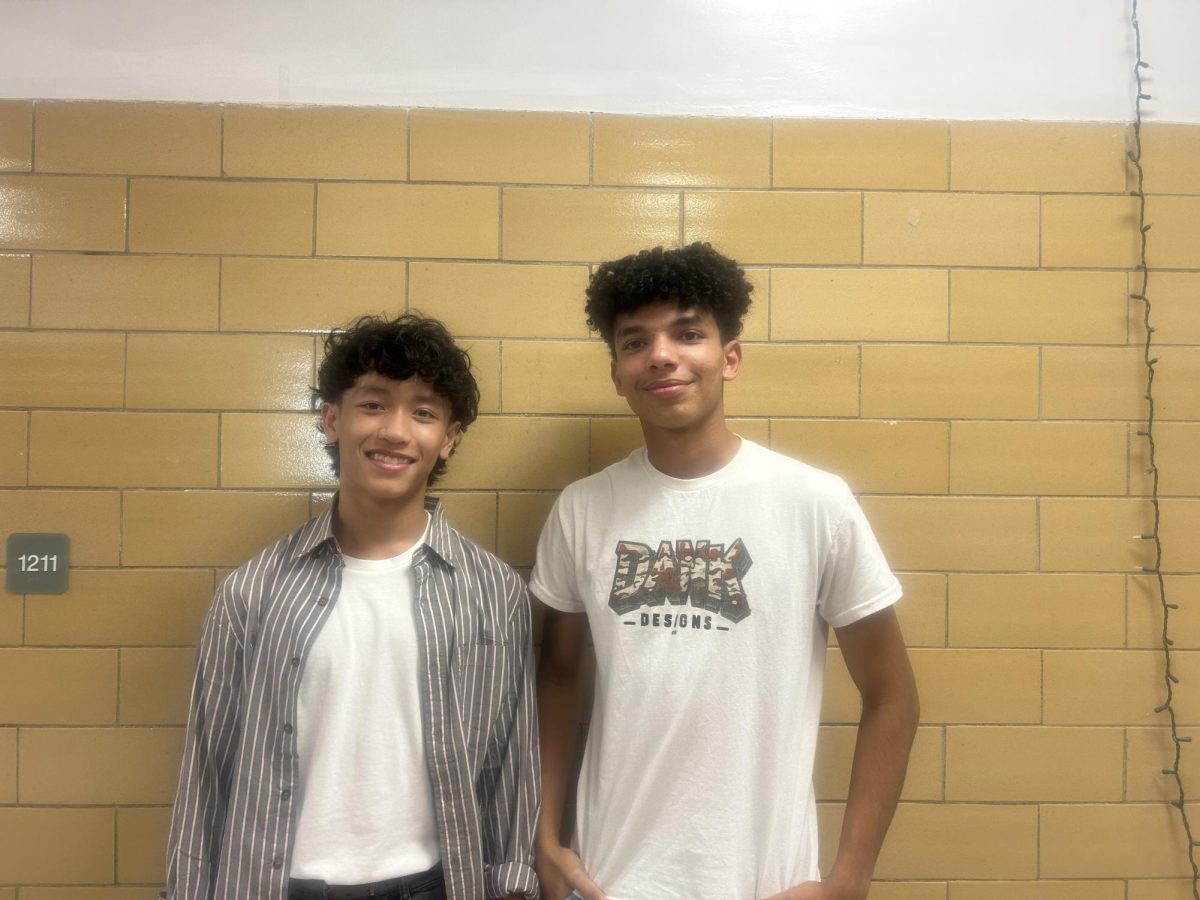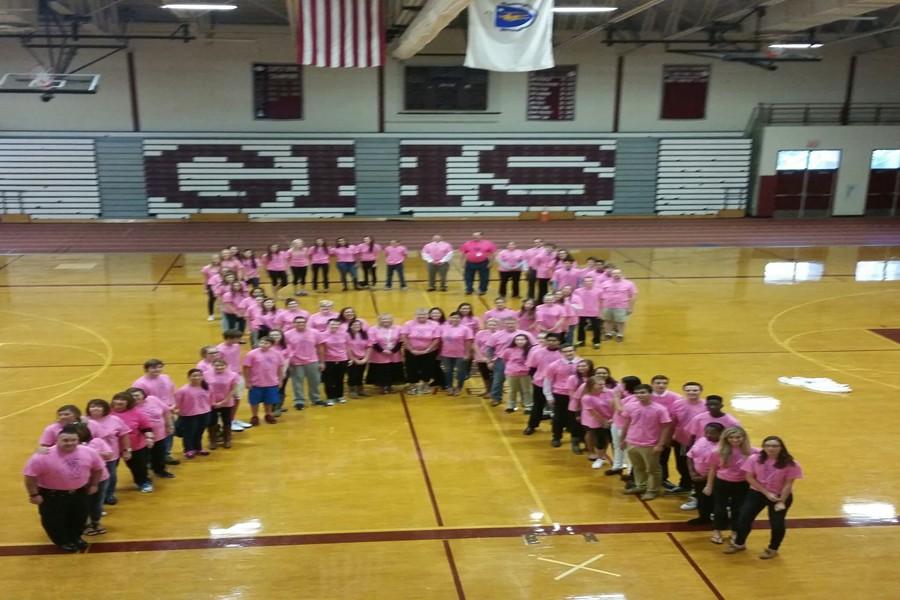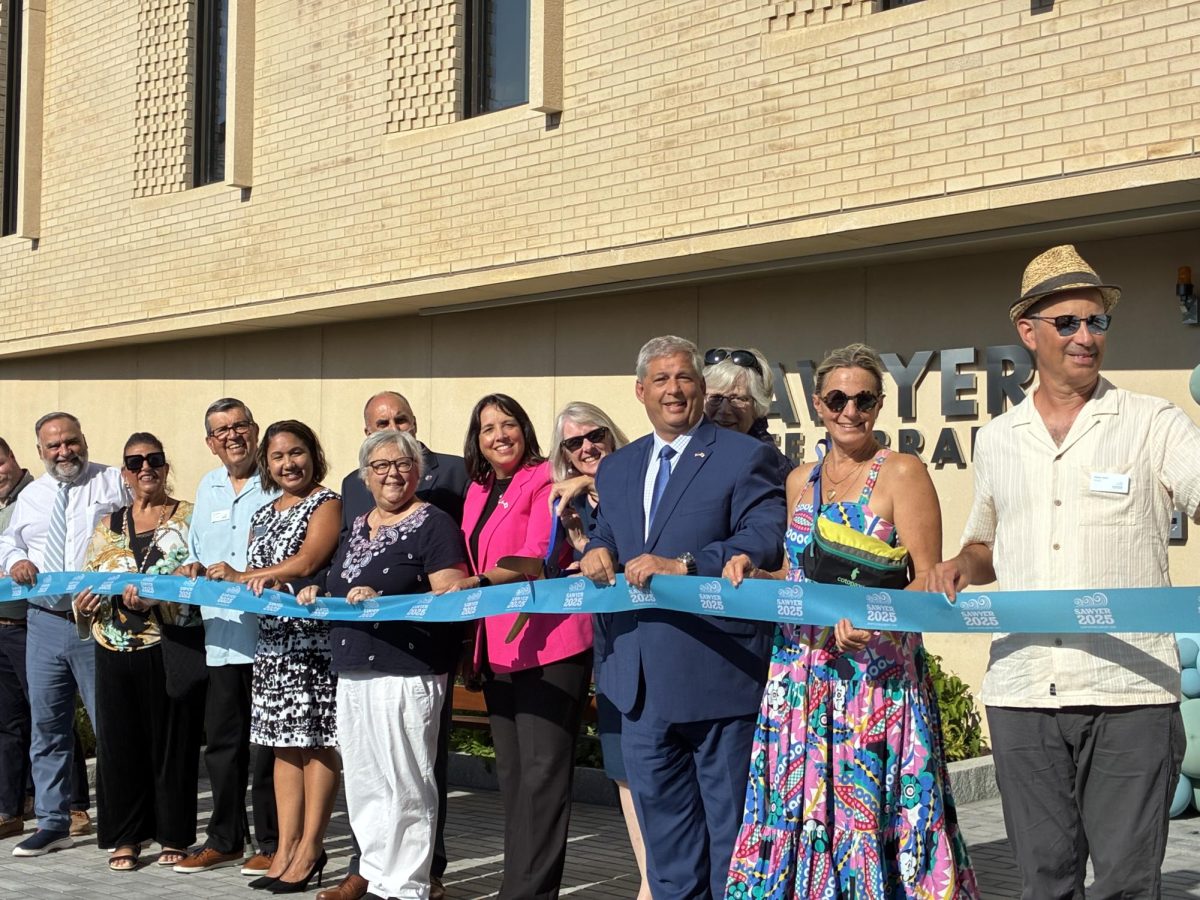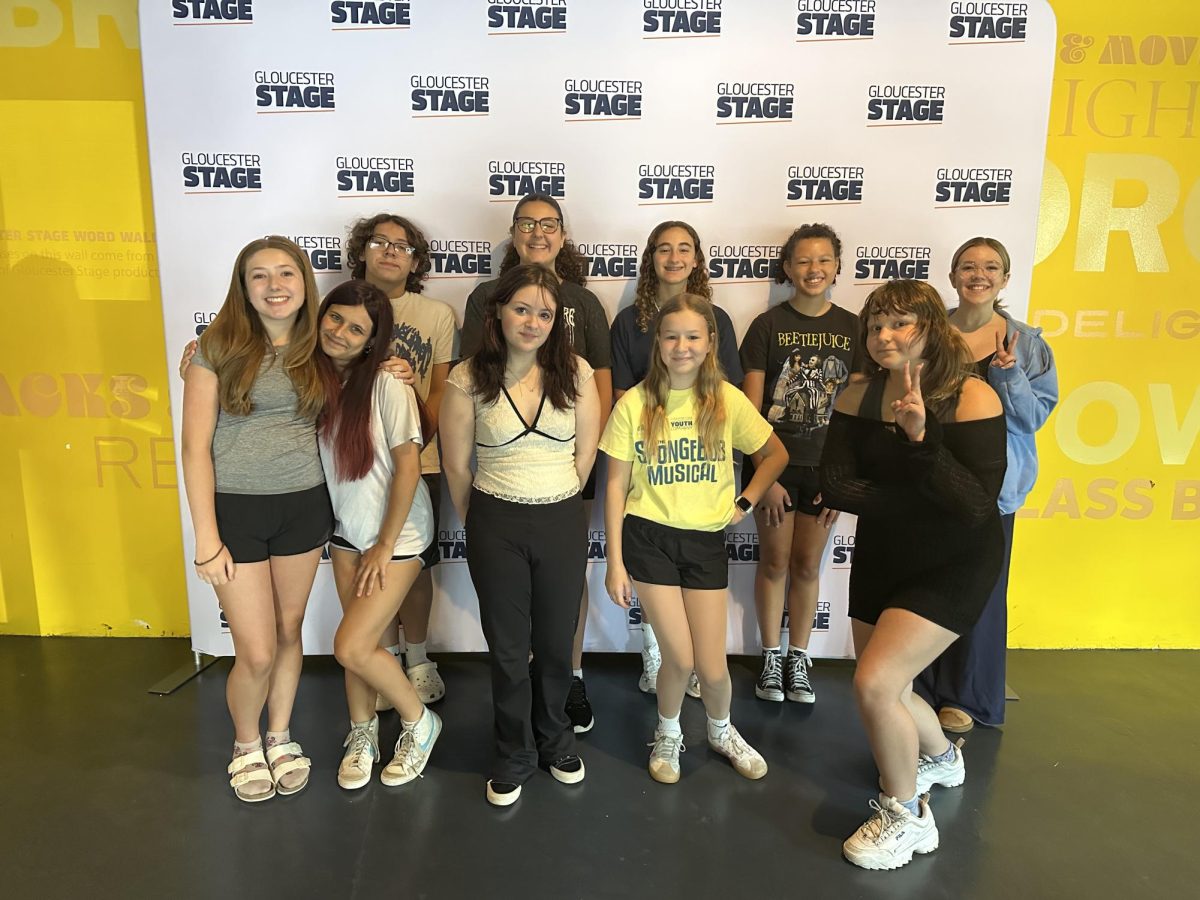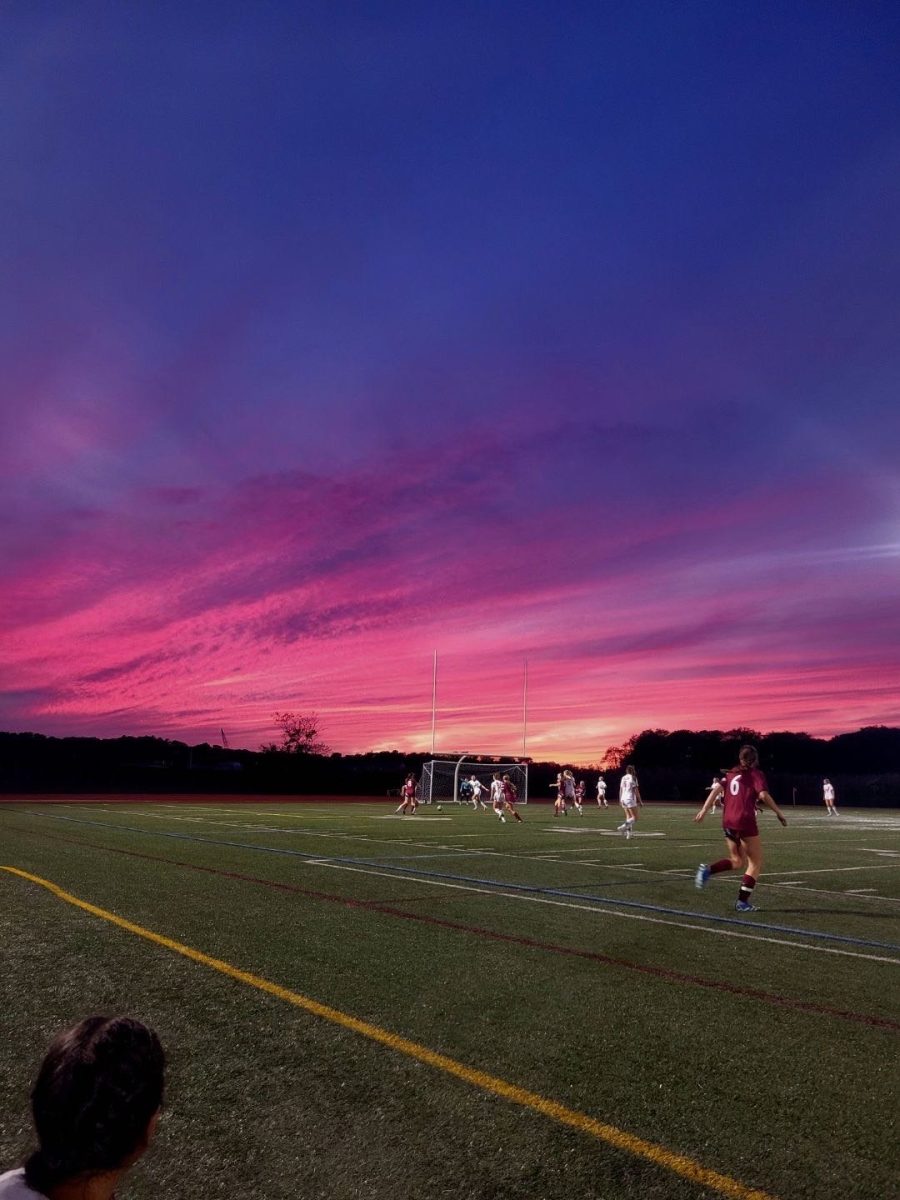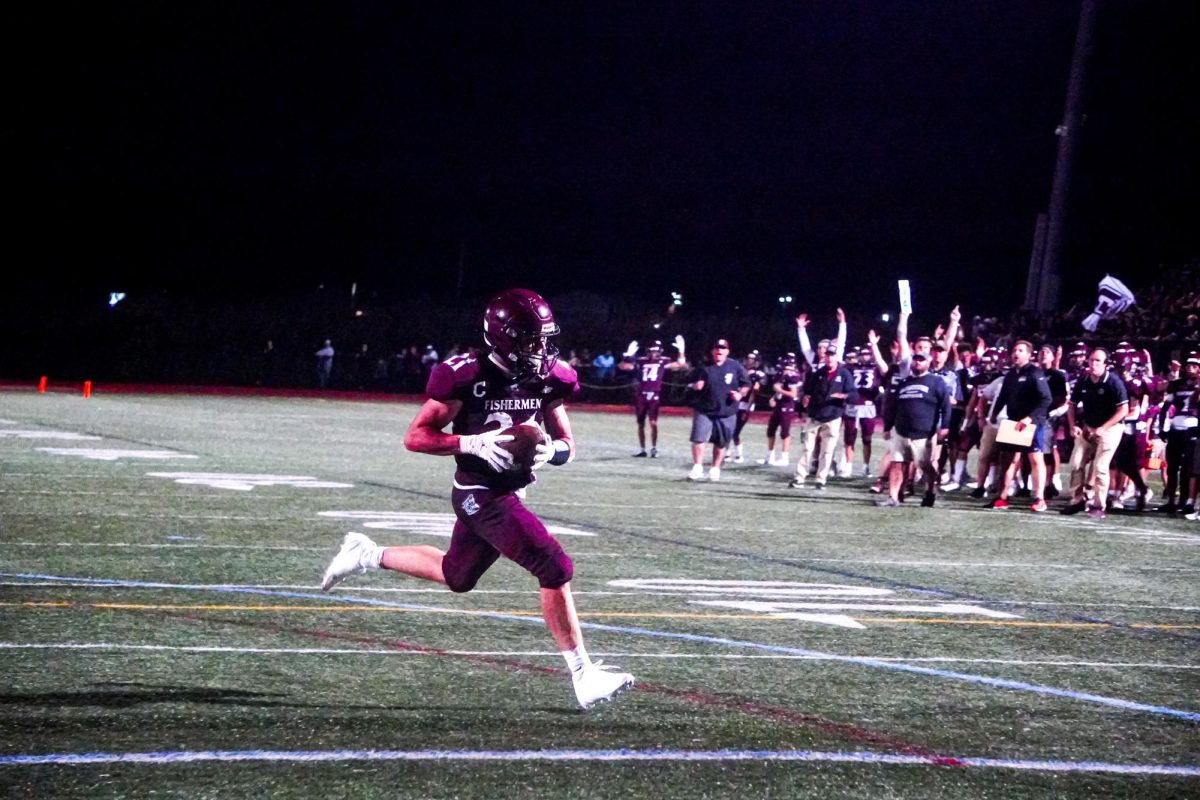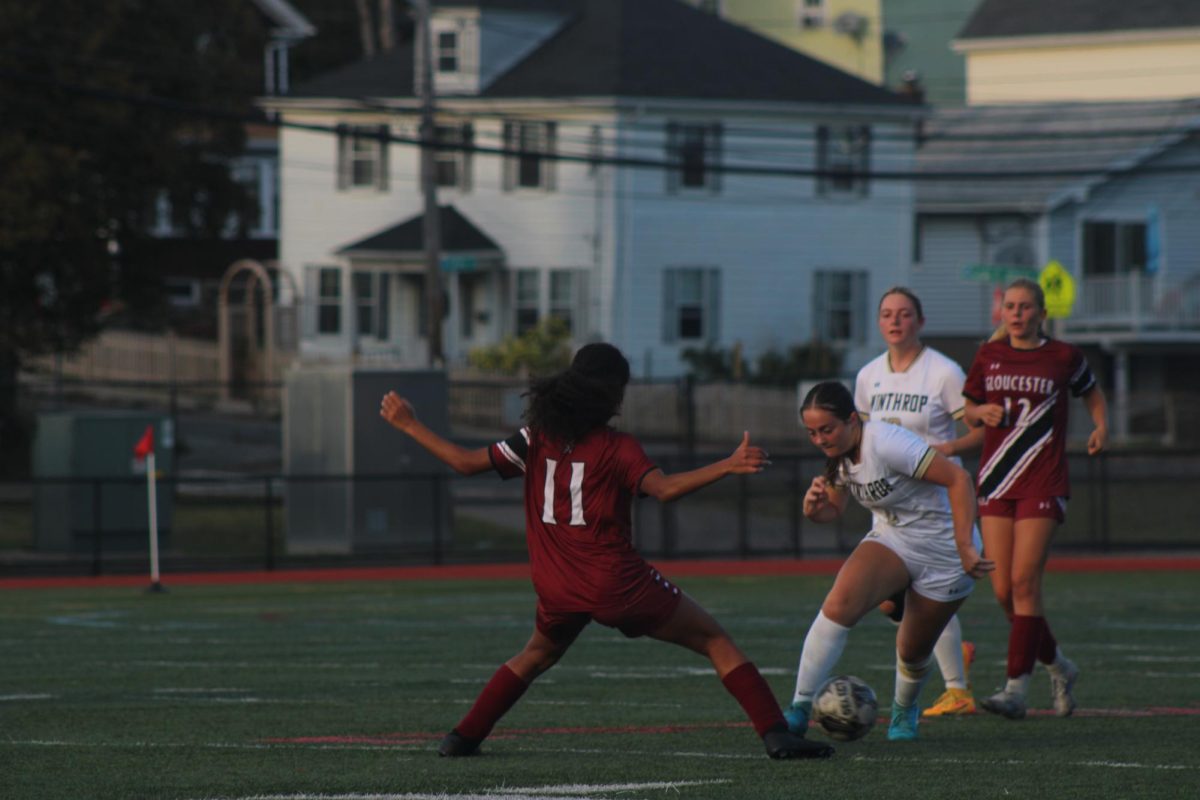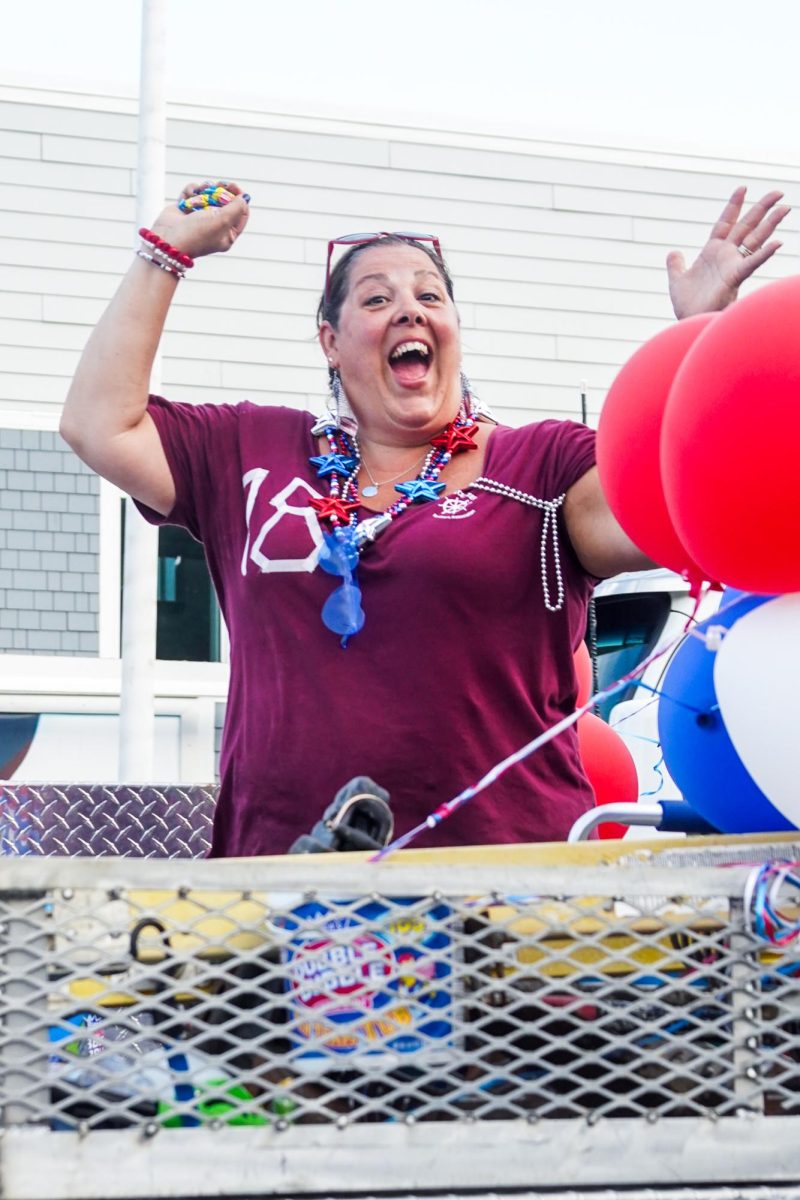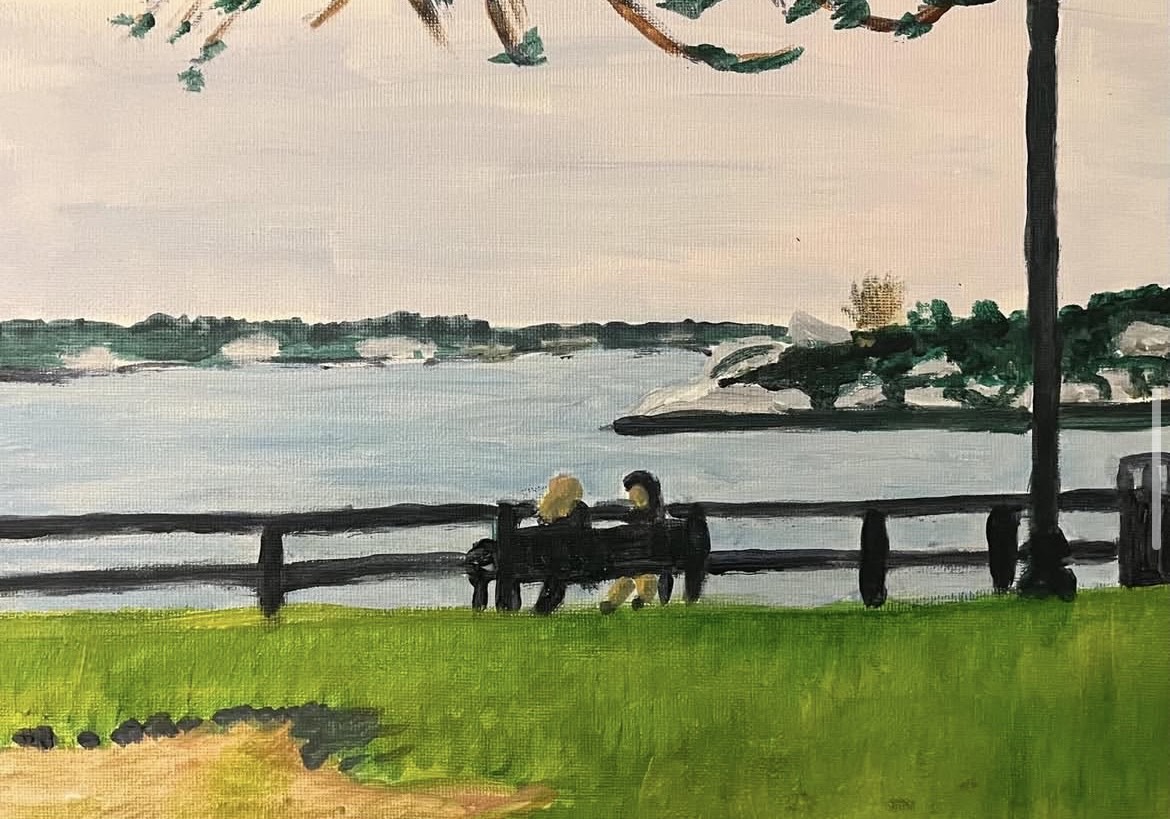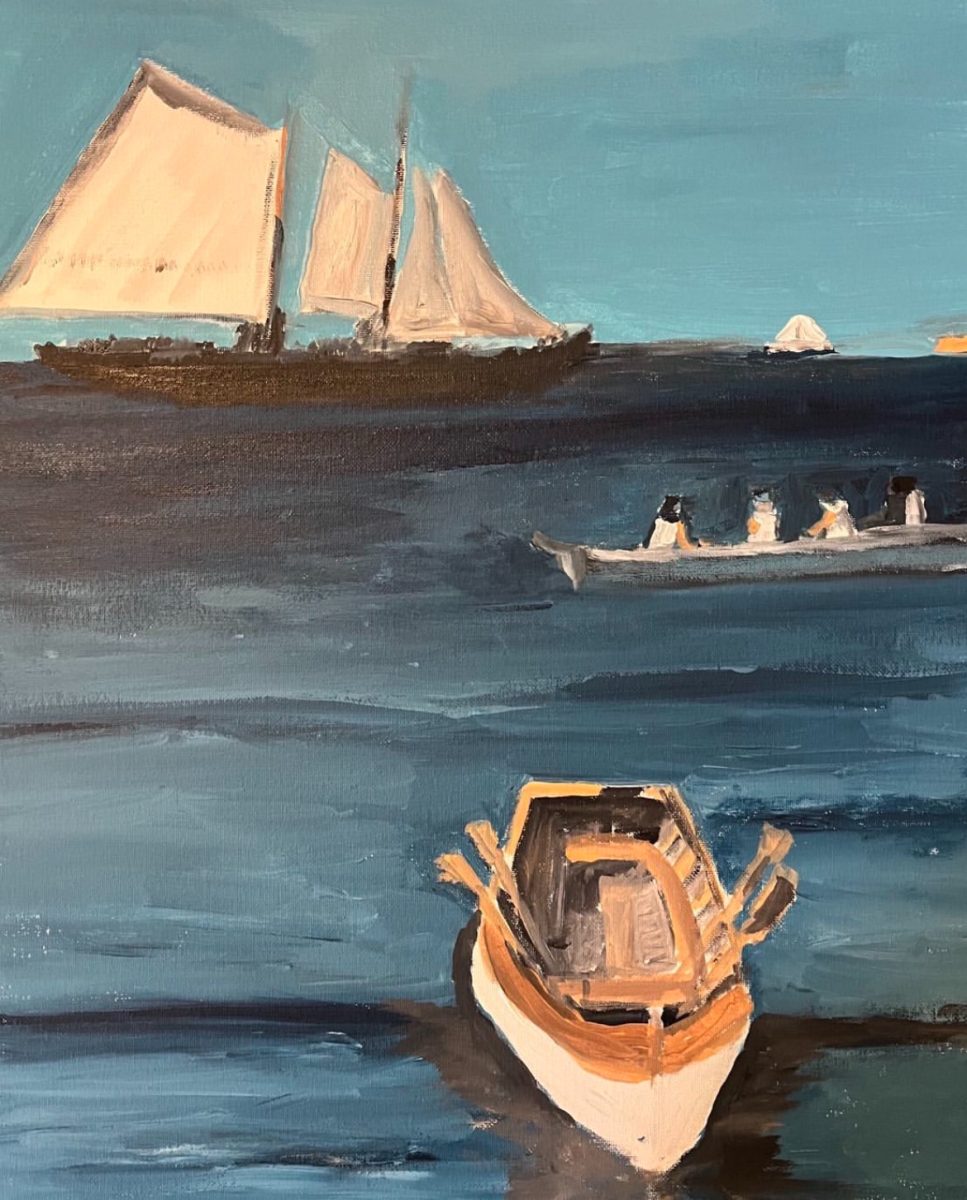When walking into a history class, the only art you expect to hear about is propaganda from World War I or a drawn map of the 13 colonies. However, 20+ year history teacher David Pleuler has found his own way to capture history – by painting it.
Pleuler began his painting journey during the COVID-19 pandemic, as he was inspired by his wife, who also enjoys making art.
“I’ve always watched her so I did know a little about it,” Pleuler said. “I started sketching birds and it just kind of developed from there.”
Although his hobby was only discovered recently, Pleuler has always used creative ways to express himself.
“In high school, I expected I was going to be a writer and a poet, and going into college that was my first degree – an English degree,” Pleuler said. “Then I ended up picking up a history degree.”
In November, he had the opportunity to mesh these passions together during the Gloucester teacher strike. He created a series of paintings showing the teacher demonstrations in various locations and captured important events during the strike. This gave him the opportunity to practice painting groups of people.
The strike also allowed him to practice landscapes, which are featured in the majority of the more than 1000 paintings he has created. These paintings usually feature landscapes including beautiful sunsets on the water or iconic landmarks and ships.
Originally, Pleuler started out using watercolor and oil paints, but he quickly switched over to acrylic as his preferred medium. Acrylic is much cheaper to compensate for the amount he paints and dries much quicker.
“I am always in a hurry to finish my paintings,” Pleuler said.
Over the past couple of years, only some have been sold; they have mainly been given away or are sitting in his studio. He has also been working to upload them digitally in an online exhibit.
“If I was ever to put together my collection, it would probably be called ‘Views of Gloucester’, ” Pleuler said.
Out of all the paintings he has created, he does not have a favorite painting.
“I always find fault in every single one of them,” Pleuler said. “I’m never really quite satisfied.”
So, next time you walk into Pleulers’s history class, don’t ask about the American Revolution; ask about his works of art!
